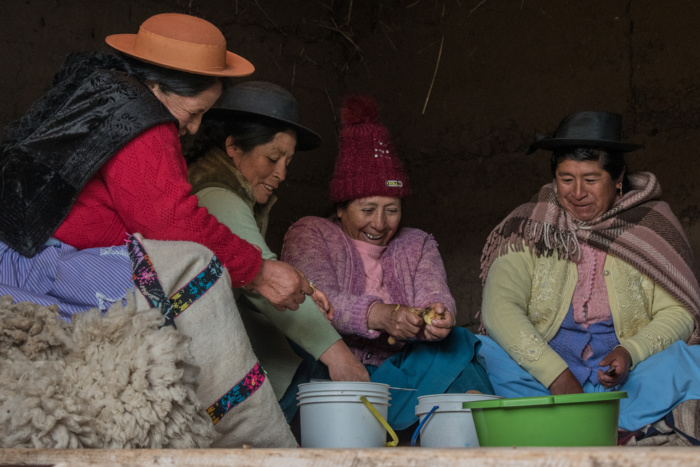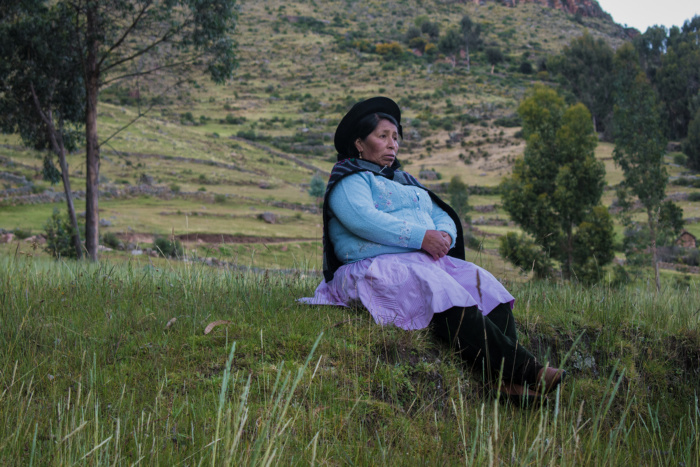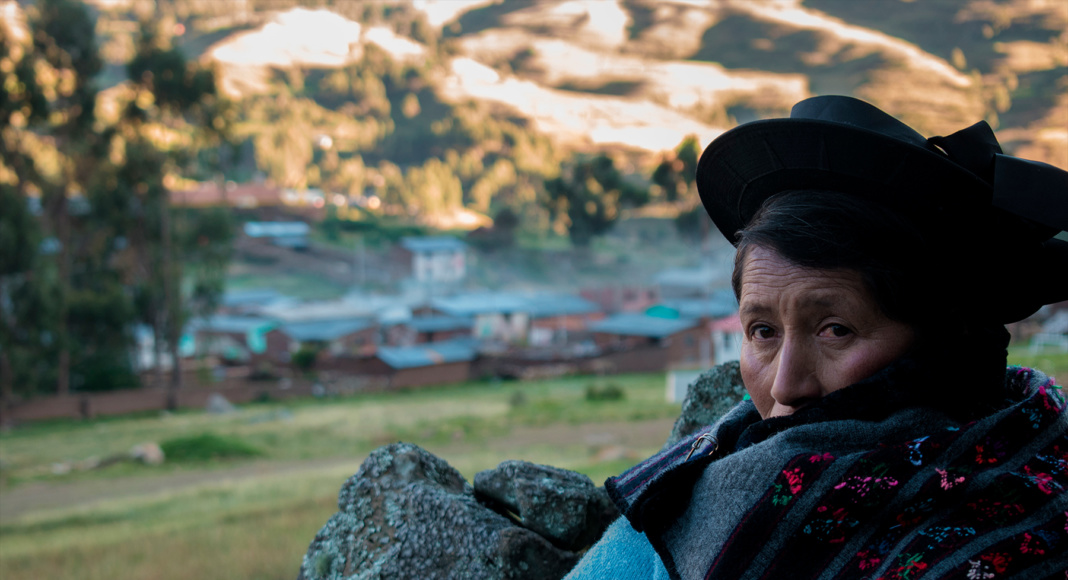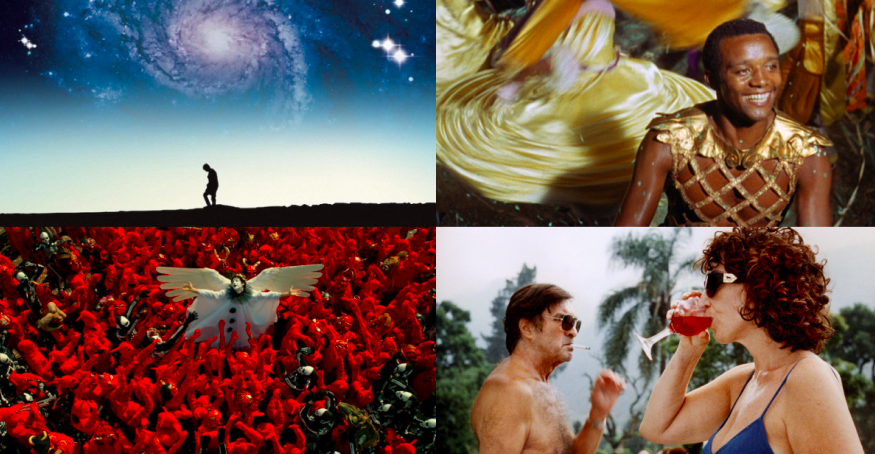In 1984, soldiers of the Peruvian army were fighting against the armed group Sendero Luminoso in the Peruvian province of Huancavelica. Throughout the conflict, many teenage girls and young women from the area were sexually abused, including Magda Surichaqui. Decades later, this compelling Peruvian documentary, directed and written by Patricia Wiesse Risso, follows Magda and other survivors in their lawsuit against the former assailants and sensitively portrays their fight to regain their dignity.
Cine Latino is screening the film online from November 5, 2021.
The shared history of Mujer de Soldado‘s protagonist Magda Surichaqui and her three friends from the Manta district in Huancavelica, is the story of thousands of Quechua-speaking Andean women who suffered a series of abuses by the national military. Even though many of these women decided to migrate to the cities to forget their past, it continues to haunt them today.
The story of sexual violence, especially against indigenous women, is not new. It has been repeated for centuries since the so-called Spanish ‘conquista’. In Claudia Llosa’s La Teta Asustada (The Milk of Sorrow), Peru’s first and only Academy Awards nomination, the main character plants a potato in her vagina to keep intruders away. In Mujer de Soldado, the story of rape is one of shared trauma.
We dive into this documentary with beautifully shot images of Magda, an indigenous woman, who walks in the idyllic and peaceful Andean landscape. The voices of lawyers presenting cases of wartime abuse are overlaid, and the fading sound of the trial stands in complete contrast to the peaceful life our protagonist seems to live now. But no matter how idyllic the landscape is, Magda’s traumatic memories keep pushing through.
The documentary is narrated in its majority in Quechua. The experiences and sorrows of the women are expressed in such great intensity in a language that has resisted a series of prohibitions and humiliations towards those who speak it. Through Quechua the film grants us a series of images and metaphors that ascribe those intimate scenes with great sensitivity.
The most powerful moments are everyday scenes of the four protagonists who share their hopes, dreams and traumatic memories whilst peeling potatoes and chewing coca leaves together. One of the friends admits that she feels a sense of rejection towards her two sons conceived by rape: ‘I look at them in anger and think they’ll grow up like them, that they will also rape women.’

At night, while sat in candlelight chewing coca leaves, the memories get darker. The four women talk about how their aggressors tried to deny any responsibility for their cruel acts.
While the trial continues in the voiceover, it is revealed that the accusers continue to deny responsibility and claim that every sexual encounter with an indigenous woman, often underaged, was consented to. A similar narrative was placed on these women by their families and communities when they fell pregnant. They were often blamed and hurtfully dubbed ‘soldiers’ women’. Magda reveals she was despised and rejected by her own family. She says she is: ‘Living like a soldier’s woman, like the skin of an army man: forever scarred.’
These words, also used as the film’s tagline, give insight into the shame, stigma and silence surrounding acts of sexual abuse. But they also open dialogue about lasting stigma and trauma through the speech acts and naming practices within communities. Children who were conceived of sexual violence in this era are sometimes referred to as ‘los regalos de los soldados‘ (the soldier’s gifts), ‘hijo de nadie‘ (nobody’s child) or ‘hijos de la patria‘ (children of the homeland), as they are a product of a war supposedly fought ‘por la patria‘. Many children also carry the military rank or nom de guerre of their father within their own name – an attempt by their mothers to demand the state take some responsibility for these children’s lives.

Even though many of these lawsuits conclude without sentencing the aggressors, the lack of justice has not stopped women like Magda from dreaming of a better future. For them, justice might just be served by looking into the eyes of their aggressors; into the eyes of the neighbours and their families who insulted them.
These women cope through sorority, offering each other tremendous support, as presented in the film’s intimate scenes of Magda and her contemporaries. In one, they wash their clothes together in the river, the strength of the current appearing to momentarily wash away their fears and give them the strength to resist.
Film director Patricia Wiesse Risso and her team take a respectful approach to the characters and story, offering Magda and other victims of abuse a chance to share the horrific truths they’ve kept to themselves for so long, with dignity. It is inspiring to hear them speak with such wisdom despite the fact their lives were forever marked by traumatic events. This sensitive documentary opens a much needed dialogue in a country that suffers from a culture of violent sexism. It’s still a long way to justice.
Also read: ‘Hidden in Plain Sight: Children Born of Wartime Sexual Violence’, Kimberly Theidon (2015).
Our partners Cine Latino and King’s College London will be screening Mujer de Soldado online for 48 hours beginning on Friday, November 5, 2021 at 6pm. All are welcome, and you can register for free here.


